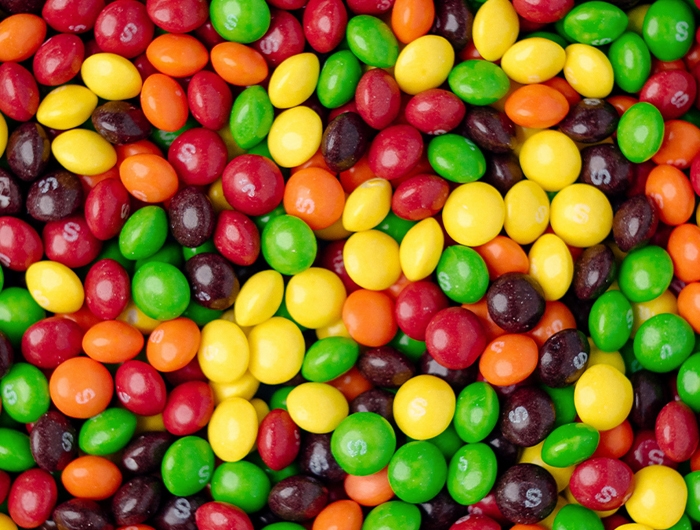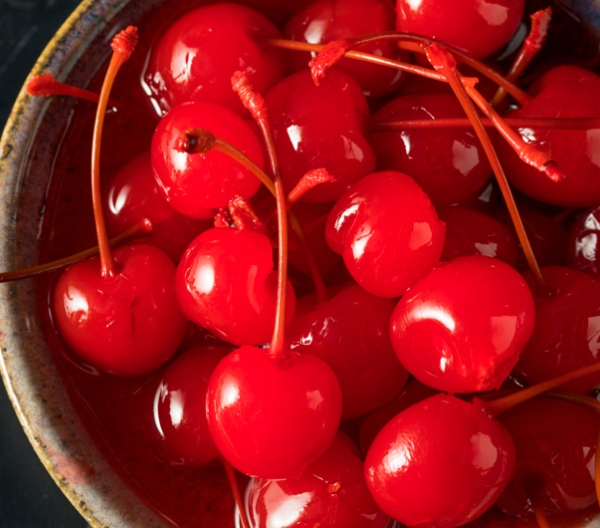5 food ingredients California and New York could soon ban

Karsten Winegeart - unsplash.com.
A first-of-its-kind bill in California seeks to ban five dangerous additives from all foods sold in the state. The bill doesn’t seek to outlaw specific products from stores—despite being billed as a 'Skittles ban' in recent weeks. And now, New York has introduced similar legislation.
A spate of recent articles about a California Assembly bill aimed at eliminating dangerous food additives from products for sale in the state have mischaracterized the legislation as a ban on Skittles. Why the popular candy is associated specifically with California AB 418 isn’t clear—several other popular foods contain one or more of the five food additives named in the bill—but what is clear is that the intent of the legislation has been obfuscated in favor of click-tempting headlines. CA AB 418 wouldn’t ban any specific food products—not even the gimmicky new mustard-flavored Skittles.
And now, New York has introduced a similar bill in the state Senate banning the same five ingredients from that state’s food sales, as well. Here’s what you need to know.
What is California AB418?
California Assembly Bill 418, authored by Assemblymembers Jesse Gabriel (D-San Fernando Valley) and Buffy Wicks (D-Berkeley), which has passed the state Assembly and is working its way through the state Senate, seeks to ban five food additives—titanium dioxide, red dye No. 3, brominated vegetable oil, propylparaben, and potassium bromate—from all food products for sale in the state. The ban would not apply to animal feed, cosmetics, medicines, personal care, or other household products. That means sun protection products and toothpaste that use titanium dioxide, for example, would still be legal to sell in California stores. It means some candies and ultra-processed foods would need to be reformulated to meet the state’s new guidelines if the bill becomes law.
The same five ingredients are the target of New York Senate Bill S6055A, introduced by Sen. Brian Kavanagh (D-Lower Manhattan).
The good news for many of these manufacturers is that the five ingredients are already banned for most food uses in the European Union, and Skittles, along with most other major candy brands, have versions for sale in EU countries that already meet the guidelines California and New York’s bills would enforce if they become law.
Why these ingredients could be banned
Each ingredient specified in the bills are currently legal to use in food products nationwide—yet all five are banned for most food uses in the EU. Both states’ proposed laws would mimic the EU’s food product regulations inside the states as a proactive measure to make up for what some lawmakers see as FDA’s failure to protect American consumers.
Assemblymember Jesse Gabriel, who introduced the California legislation, has explained that it’s not a ban on Skittles—a candy he enjoys: “I love Skittles. I would vote against a bill to ban Skittles and I think there is a 0% chance that this bill is going to result in Skittles or any other product coming off the shelves.”
Instead, Gabriel says, the bill takes aim at the FDA, which he feels is behind the curve on protecting consumers from unsafe food chemicals in the U.S.. “The idea here is to get these manufacturers to do what they have already done in Europe, what they have already done in Canada, what they’ve already done in so many other countries around the world, which is just to make a very minor modification to their recipes. In most cases, it is changing out one ingredient for another.”
These ingredients, used variously as preservatives, colorants, and texture modifiers, have safer counterparts already in wide use on the global market.
What is titanium dioxide?
Titanium dioxide is a color additive currently approved for use in the U.S. in human food, drugs, cosmetics, and medical devices (e.g., contact lenses). Titanium dioxide was recently banned from use in food in Europe over concerns that it could harm human health. Based on evidence that titanium dioxide nanoparticles present in food-grade titanium dioxide can accumulate in the body and cause DNA damage, CSPI rates titanium dioxide as “Avoid.”
In March 2023, Center for Science in the Public Interest, along with Environmental Working Group, Environmental Defense Fund, Center for Food Safety, and Center for Environmental Health, petitioned the FDA to revoke its approval to use the harmful color additive titanium dioxide in food.
“It’s great that states are starting to step up to protect consumers from toxic chemicals in candy, cookies and other foods, but we believe everyone—not just Californians—deserves those same protections,” said Thomas Galligan, principal scientist for food additives and supplements at CSPI.
What is red dye No. 3?
Many synthetic food dyes are associated with health risks, but Red 3 is an unusual case.
The evidence that this dye caused thyroid tumors in rats is "convincing," according to a 1983 report by FDA. FDA's recommendation that the dye be banned was overruled by pressure from the cherry industry and the U.S. Department of Agriculture. Red 3 used to color maraschino cherries, but it has been replaced there by Red 40, which is harmful for other reasons.
It’s been banned from use in cosmetics and drugs in the U.S. but is still permissible in food. Why should we be eating something we can’t even use in lipstick? In October 2022, CSPI and 23 other organizations and prominent scientists urged the FDA to formally remove Red 3 from the list of approved color additives in foods, dietary supplements, and oral medicines.
What is propylparaben?
Parabens are used as preservatives in personal care products, some household products like cleaners and soaps, and in some processed foods. And while it’s always the best option to choose whole foods and minimally processed food items, parabens are not as easily avoided as you might expect; some snacks and other foods marketed as healthy alternatives, like some Weight Watchers snack cakes, contain propylparaben.
Propylparaben, along with some other paraben ingredients, have been banned from food products in Europe due to health concerns involving endocrine disruption and fertility issues.
What is brominated vegetable oil?
Brominated vegetable oil, or BVO, is an emulsifier that’s used to mix citrus flavors into liquids, usually in soft drinks. Safety questions have been hanging over BVO since 1970, when the FDA removed BVO from its “Generally Recognized as Safe” list, and the ingredient has lost favor in the U.S. markets as a result. Though BVO is no longer a first choice for manufacturers, it does still find its way into widely available beverages.
BVO leaves residues in body fat and the fat in brain, liver, and other organs. Animal studies indicate that BVO is transferred to nursing infants and can cause heart lesions, fatty changes in the liver, and impaired growth and behavioral development.
Sensitive, modern studies are urgently needed to better understand the risk, especially at the lower levels typically consumed by large numbers of children. Meanwhile, BVO should not be used (it is not permitted in Europe).
What is potassium bromate?
Potassium bromate is added to processed foods containing flour, like bread, buns, and snack cakes, to create a fine, soft crumb.
Most bromate rapidly breaks down to form innocuous bromide. However, bromate itself causes cancer in animals. The tiny amounts of bromate that may remain in bread pose a small risk to consumers.
Potassium bromate has been banned virtually worldwide except in Japan and the United States. While AB 418 would ban the ingredient outright in California, it’s already rarely used in the state because a cancer warning might be required on the label. In 1999, CSPI petitioned the FDA to ban bromate. Since then, numerous millers and bakers have stopped using it.
What happens now?
The California bill is in the Senate undergoing committee review. From there, it must pass in the state Senate and be signed by Gov. Gavin Newsom (D-CA) to become law.
The New York bill has been introduced and passed in committee. If it passes in the state Assembly and Senate and is signed by Gov. Kathy Hochul (D-NY), the ban on these five ingredients will be effective Jan. 1, 2025.
How to protect your health
In the meantime, you can support your health by avoiding the ingredients these bills would ban. Check out our Chemical Cuisine database of food additives, read product labels to check for harmful additives, and when possible, opt for whole foods and water or unsweetened beverages.
Support CSPI today
As a nonprofit organization that takes no donations from industry or government, CSPI relies on the support of donors to continue our work in securing a safe, nutritious, and transparent food system. Every donation—no matter how small—helps CSPI continue improving food access, removing harmful additives, strengthening food safety, conducting and reviewing research, and reforming food labeling.
Please support CSPI today, and consider contributing monthly. Thank you.

Stirring the Pot
Join the fight for safer, healthier food
Sign up to receive action alerts and opportunities to support our work in Stirring the Pot, our monthly newsletter roundup.

